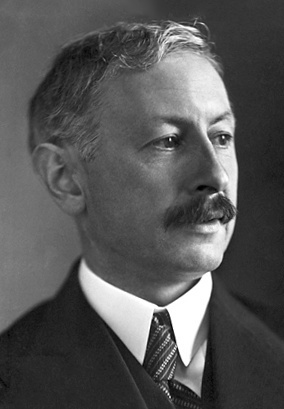Paul Karrer
Paul Karrer (21 April 1889 – 18 June 1971) was a Swiss chemist who was awarded the Nobel Prize in Chemistry in 1937 for his research on carotenoids, flavins, and vitamins A and B2. His work significantly advanced the understanding of these essential nutrients and their roles in human health.
Early Life and Education[edit | edit source]
Paul Karrer was born in Moscow, Russia, to Swiss parents. His family returned to Switzerland when he was young. Karrer studied chemistry at the University of Zurich, where he earned his doctorate under the supervision of Alfred Werner, a Nobel laureate in chemistry.
Career and Research[edit | edit source]
After completing his doctorate, Karrer worked with Paul Ehrlich at the Georg-Speyer-Haus in Frankfurt, where he conducted research on chemotherapy. In 1918, he returned to the University of Zurich as a professor and later became the director of the Chemical Institute.
Karrer's research focused on the structure and function of carotenoids, which are pigments found in plants and are important for photosynthesis. He was the first to elucidate the structure of beta-carotene, the precursor of vitamin A. His work on flavins led to the identification of riboflavin (vitamin B2), which is essential for cellular respiration.
Nobel Prize[edit | edit source]
In 1937, Paul Karrer was awarded the Nobel Prize in Chemistry along with Walter Haworth for their investigations on carotenoids, flavins, and vitamins A and B2. Karrer's contributions to the field of organic chemistry and biochemistry have had a lasting impact on the understanding of vitamins and their importance in nutrition.
Later Life and Legacy[edit | edit source]
Karrer continued his research and teaching at the University of Zurich until his retirement in 1959. He published numerous scientific papers and several books on organic chemistry. Karrer passed away on 18 June 1971 in Zurich, Switzerland.
Paul Karrer's work laid the foundation for much of the modern understanding of vitamins and their role in human health. His contributions to chemistry and biochemistry are still recognized and celebrated today.
See Also[edit | edit source]
References[edit | edit source]
External Links[edit | edit source]
Template:Nobel Prize in Chemistry Laureates 1931-1950
Search WikiMD
Ad.Tired of being Overweight? Try W8MD's physician weight loss program.
Semaglutide (Ozempic / Wegovy and Tirzepatide (Mounjaro / Zepbound) available.
Advertise on WikiMD
|
WikiMD's Wellness Encyclopedia |
| Let Food Be Thy Medicine Medicine Thy Food - Hippocrates |
Translate this page: - East Asian
中文,
日本,
한국어,
South Asian
हिन्दी,
தமிழ்,
తెలుగు,
Urdu,
ಕನ್ನಡ,
Southeast Asian
Indonesian,
Vietnamese,
Thai,
မြန်မာဘာသာ,
বাংলা
European
español,
Deutsch,
français,
Greek,
português do Brasil,
polski,
română,
русский,
Nederlands,
norsk,
svenska,
suomi,
Italian
Middle Eastern & African
عربى,
Turkish,
Persian,
Hebrew,
Afrikaans,
isiZulu,
Kiswahili,
Other
Bulgarian,
Hungarian,
Czech,
Swedish,
മലയാളം,
मराठी,
ਪੰਜਾਬੀ,
ગુજરાતી,
Portuguese,
Ukrainian
Medical Disclaimer: WikiMD is not a substitute for professional medical advice. The information on WikiMD is provided as an information resource only, may be incorrect, outdated or misleading, and is not to be used or relied on for any diagnostic or treatment purposes. Please consult your health care provider before making any healthcare decisions or for guidance about a specific medical condition. WikiMD expressly disclaims responsibility, and shall have no liability, for any damages, loss, injury, or liability whatsoever suffered as a result of your reliance on the information contained in this site. By visiting this site you agree to the foregoing terms and conditions, which may from time to time be changed or supplemented by WikiMD. If you do not agree to the foregoing terms and conditions, you should not enter or use this site. See full disclaimer.
Credits:Most images are courtesy of Wikimedia commons, and templates, categories Wikipedia, licensed under CC BY SA or similar.
Contributors: Prab R. Tumpati, MD

